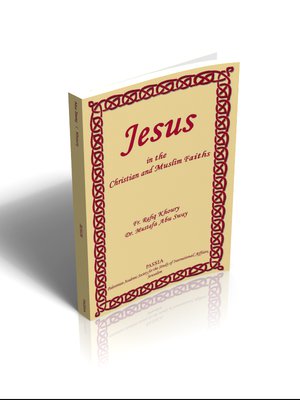Jesus in the Christian and Muslim Faiths
One of the most passionately told and perceived narratives in Christianity as well as in Islam is that of Jesus Christ, or Isa Ibn Maryam: his birth, his words and deeds, his disciples and followers and his mother, the Virgin Mary. Therefore PASSIA decided to add the case of Jesus to its series of monographs on religious figures and commissioned two versions of Jesus’ story by Christian (Father Rafiq Khoury) and Muslim (Dr. Mustafa Abu Sway) scholars to help understand people's beliefs in Jesus as well as the Virgin Mary and the special places they hold in both the Holy Qur'an and the Bible.
Overview
Dr. Mahdi Abdul Hadi
Head of PASSIA, Jerusalem
Since the establishment of the Religious Studies Unit at PASSIA ten years ago, we have been very keen to portray the three monotheistic faiths – Muslim, Christian and Jewish – through their holy texts and to encourage all – believers or otherwise – to reflect upon their understanding of the holy text in terms of their language, practice and culture. On the other hand, it has also been our objective to draw the thin line between history, religion and legend.
Of course, we never claim any responsibility or authority in judging people's perceptions, but we are very interested in understanding their points of view. One of the many objectives of the Religious Studies Unit has been to introduce the holy texts in the three monotheistic faiths, and to encourage dialogue among scholars and experts to put forward their interpretations of the texts with the background of historical narrative.
One of the most passionately told and perceived narratives in Christianity as well as in Islam is that of Jesus Christ, or Isa Ibn Maryam: his birth, his words and deeds, his disciples and followers and his mother, the Virgin Mary. There have been and continue to be many theologians, scholars and historians writing about Jesus and the narratives of the Virgin Mary from their various perspectives, and I believe this path of research and study to be endless. This encouraged us at PASSIA to try and compile two versions of Jesus’s story by Christian and Muslim scholars for our community and to encourage them to go further in understanding people's beliefs in Jesus as well as the Virgin Mary and the special place she holds in the Holy Qur'an.
Jesus invited human beings to love each other as brothers, to forgive each other, to strive for peace and to show humility, mercy and faith. As a teacher for mankind, as a prophet or as the messiah, he was the personification of righteousness and advocated forgiveness for those who act out of ignorance; according to the Christian Bible, he set an example in the most challenging of circumstances, crying out during his crucifixion, "Forgive them, father! For they know not what they do."
The Islamic narrative does not hold Jesus to be Godly as does its Christian counterpart; according to the Qur’an, “the similitude of Jesus before Allah is as that of Adam; He created him from dust, and then said to him ‘Be’: and he was.” There are, of course, many differences in the narratives concerning Jesus’s birth, his crucifixion and death, and his resurrection and ascendance to heaven, but this should not in any way shake or weaken Muslim or Christian faith in Jesus or cast doubt on his heavenly message, and it should especially not separate us through narrow-minded interpretations of our holy texts.
This series of PASSIA monographs on religious prophets serves not only to enrich the academic library, but to provide our communities with the tools to distinguish between the narratives and perspectives of various scholars in the context of the depths of their beliefs, and to help them to avoid the trap of creating or perpetuating myths. This approach has proved essential in our dialogue-based interfaith activities.
I, for one, believe deeply in Jesus, and my faith as a Muslim is complete only if I have full faith and belief in the texts of the Injil (Gospel) and Torah. In addition to my belief in the Qur'an and in the prophetic traditions, it is Jerusalem, Bethlehem and Nazareth; the holy places; Palestinian Christians and the harmony in the coexistence of our societies, which have been empowering my belief in Jesus Christ. It is my ambition to enhance this academic, social and religious environment by encouraging my colleagues to continue to communicate their perspectives in a spirit of sharing, humility and mutual respect.

